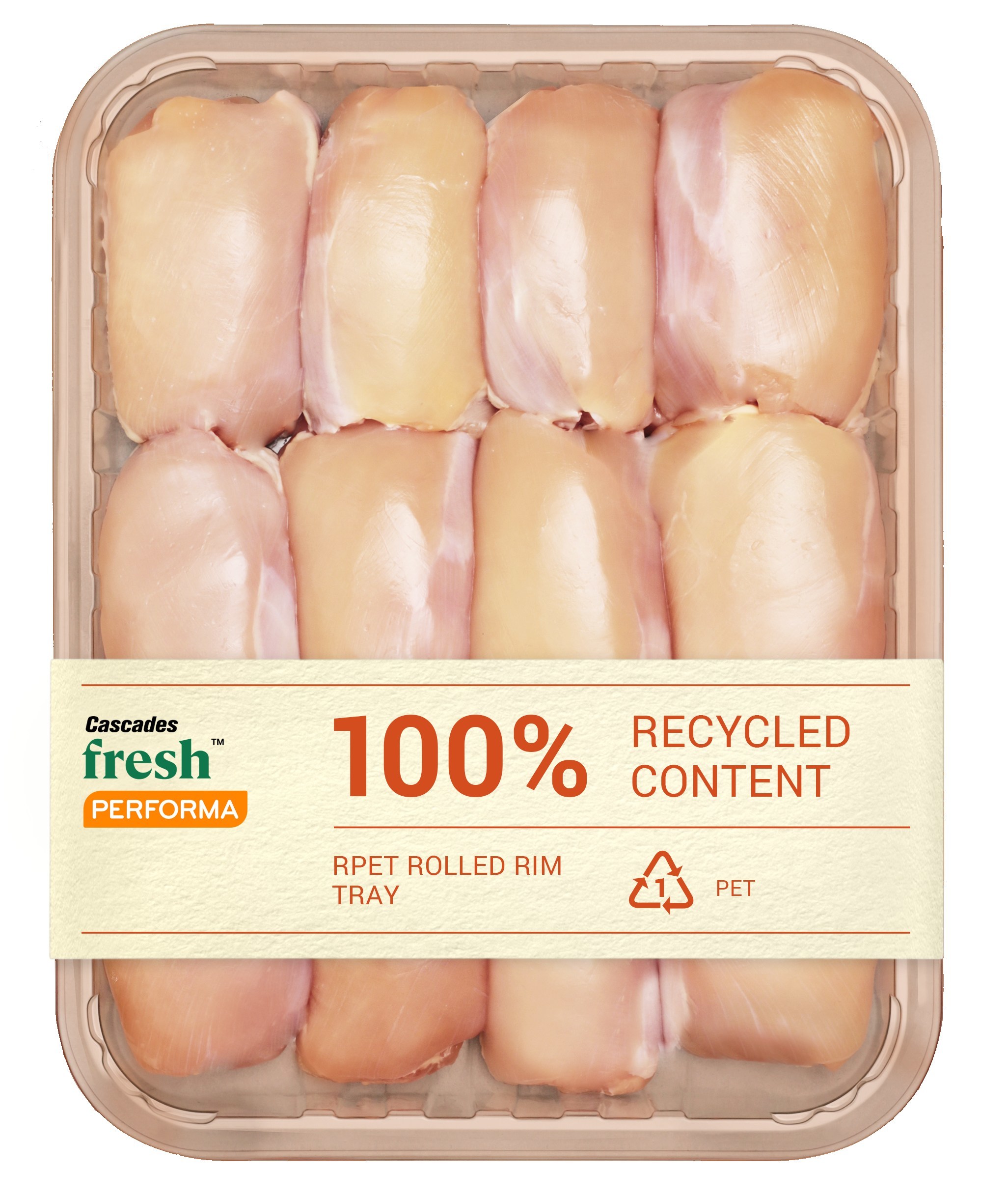
News
Cascades announces a new eco-friendly package with recycled material
April 27, 2022
By
Canadian Manufacturing


A rolled edge tray made of 100% recycled PET and designed with circular economy in mind. (CNW Group/Cascades Inc.)
KINGSEY FALLS — Cascades announces the expansion of its eco–friendly packaging line with the addition a 100% recycled PET tray which is also recyclable. Its design makes the tray compatible with the packaging equipment already used by food processors and retailers.
The 100% recycled PET composition of this tray and its design reportedly make it an alternative for hard-to-recycle food packaging. By using recycled PET exclusively, Cascades is trying to help its customers reduce their impact on climate change by 69%. The desire to include this new product in the logic of circular economy was reportedly a priority from the outset of its design, and the efforts made in this regard led to meaningful recognition: How2Recycle® has prequalified this tray as widely recyclable in Canada and recyclable in limited communities in the United States. Cascades says this took three years of research to develop its design that allows for minimal use of materials while ensuring optimal rigidity.
“This latest innovation is the fruit of our continuous efforts to find more sustainable solutions and develop a truly circular economy for food packaging. We would like to thank our early adopter customers for their trust,” said Luc Langevin, President and Chief Operating Officer of Cascades Specialty Products Group.
The tray is manufactured in Québec at the Cascades Inopak plant, which has benefited from an investment program of over $30 million aimed at supporting the development of packaging made from 100% recycled PET flakes. These investments are part of Cascades’ efforts to grow in eco-friendly packaging. This new product contributes to the achievement of one of the goals in Cascades’ Sustainability Action Plan: that 100% of its manufactured packaging be recyclable, compostable or reusable by 2030.
Print this page